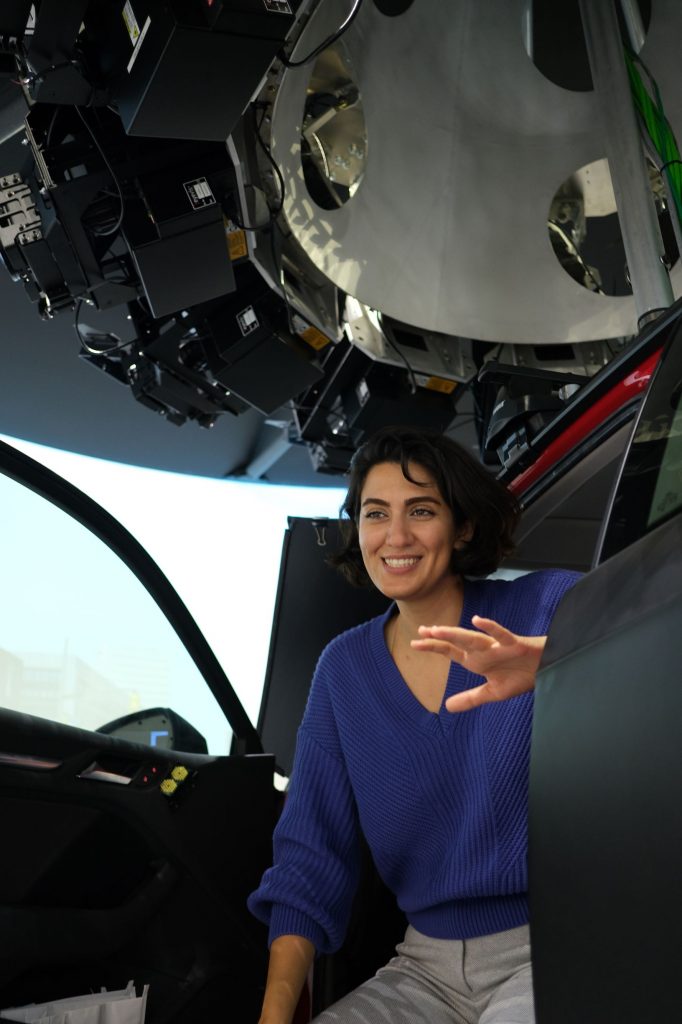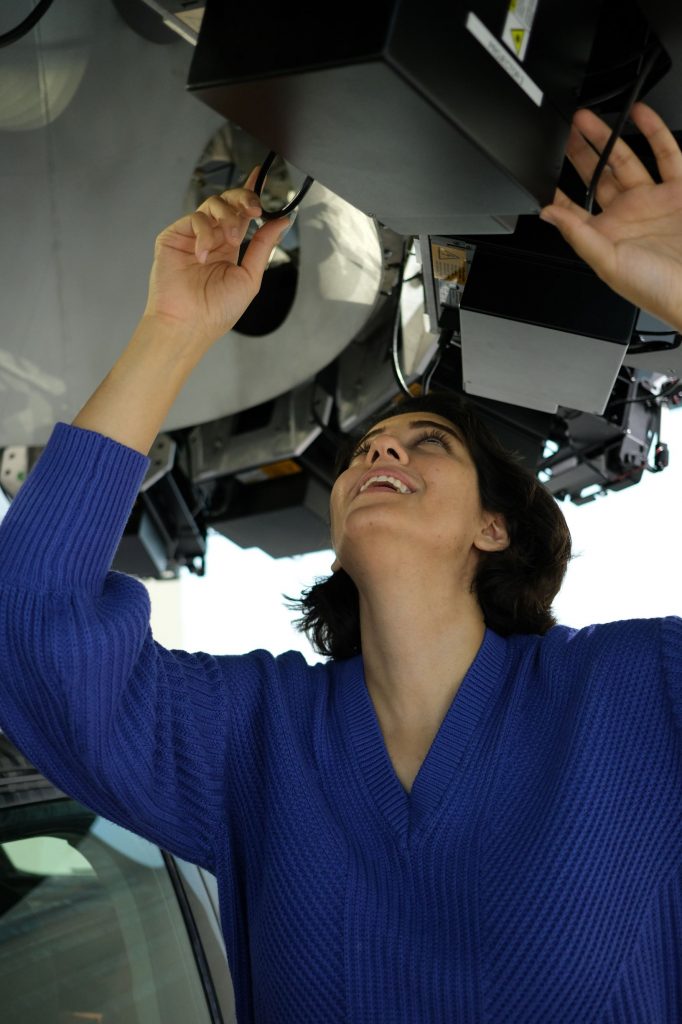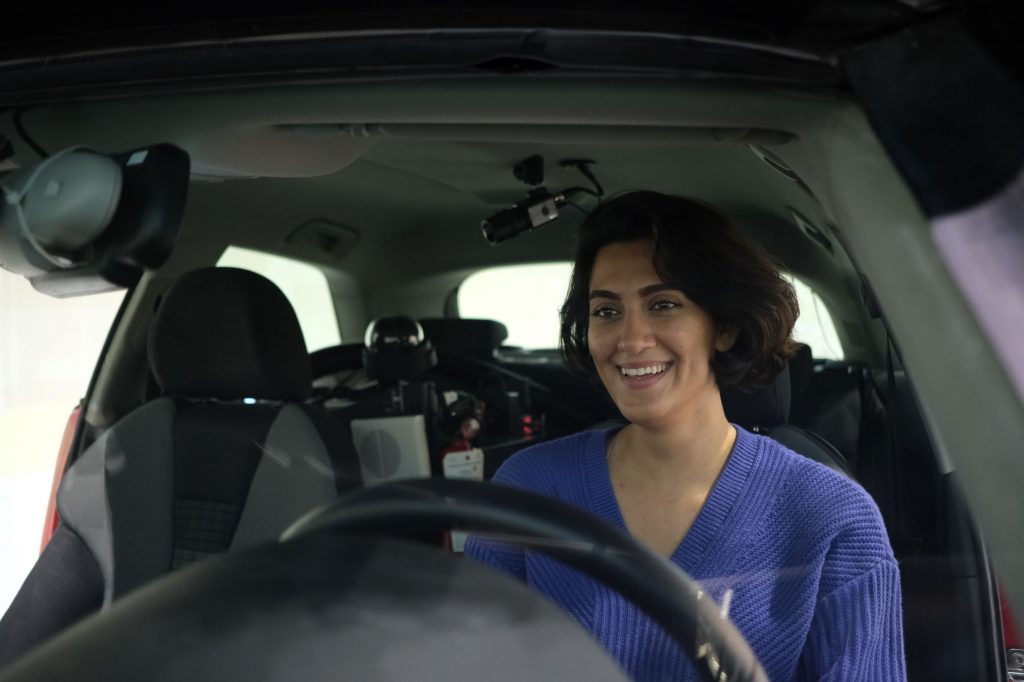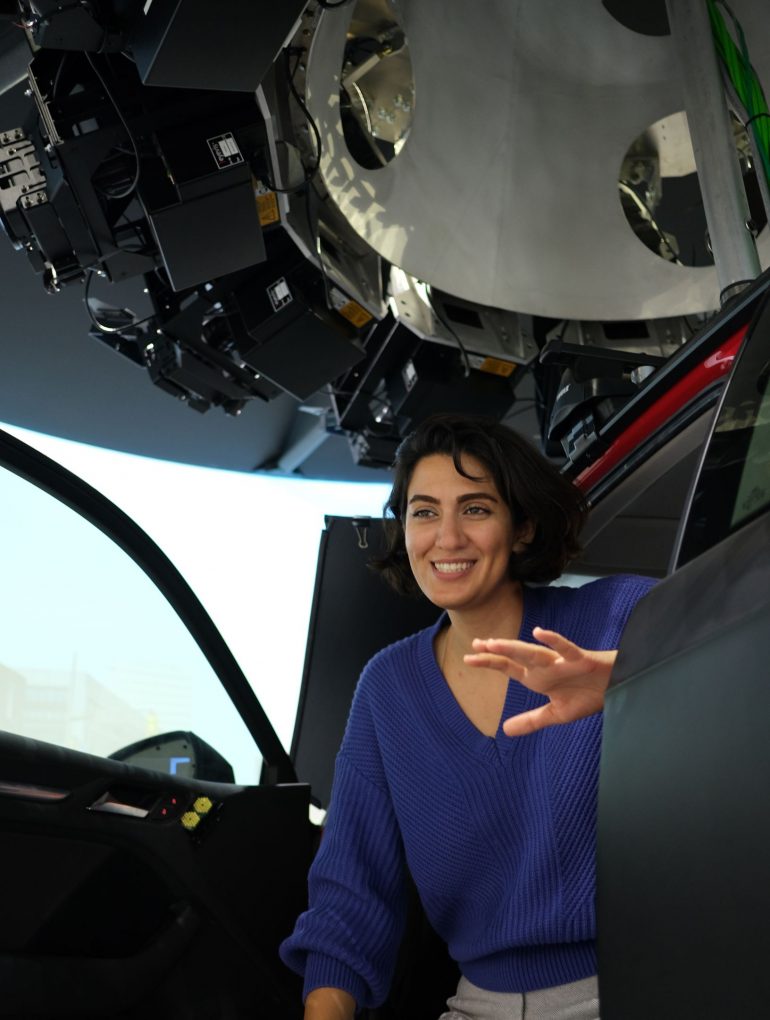I studied Electrical Engineering in undergrad abroad. Contrary to the good representation we have in BME, we had only two female faculty members in my university’s department at the time. So, each time I hear about a success story of a women in STEM, I get genuinely happy – it reinforces my sense of belonging, which is something I might have lacked during undergrad.

When choosing my undergraduate major, I was torn between Software and Electrical Engineering. Most advices I got to help with this decision was that “Software Engineering is more suitable for a girl”. So, I chose Electrical Engineering. Certain stereotypes should never stop anyone from pursuing something the enjoy.

I could have not predicted that I will be working with automated vehicles as a biomedical engineer. At the same time, my notion of biomedical engineering has always been about using “engineering” to improve human health and quality of life. So after all, it makes sense that my PhD project is about using one of the most sophisticated achievements of the field of engineering to improve older adults’ quality of life.

I work in a lab that is all about assistive technologies, using assistive technologies for older adults or individuals who may have impairments. The idea behind my project is about using automated vehicles as such an assistive technology that can potentially improve the quality of life experienced by older adults living with cognitive impairments. The idea is to use a sophisticated technology not just as another awe-inspiring piece of tech, but to do people good.

Sometimes as a scientist what you talk about may sound like science fiction – my project certainly does sound so to some. But I think such “high-risk” projects are not that high-risk and are/should be a critical part of research. If nothing works out and we realize that these automated vehicles cannot generally be used by individuals with cognitive impairments, then we have a cautionary tale to tell that may make future designers of such vehicles think about solutions. At the end of the day, these vehicles may just not have been designed for the individuals with cognitive impairments, so we need to start by identifying those areas of mismatch to build on them.

For me science has always been about contributing to something more than yourself to make a change.


